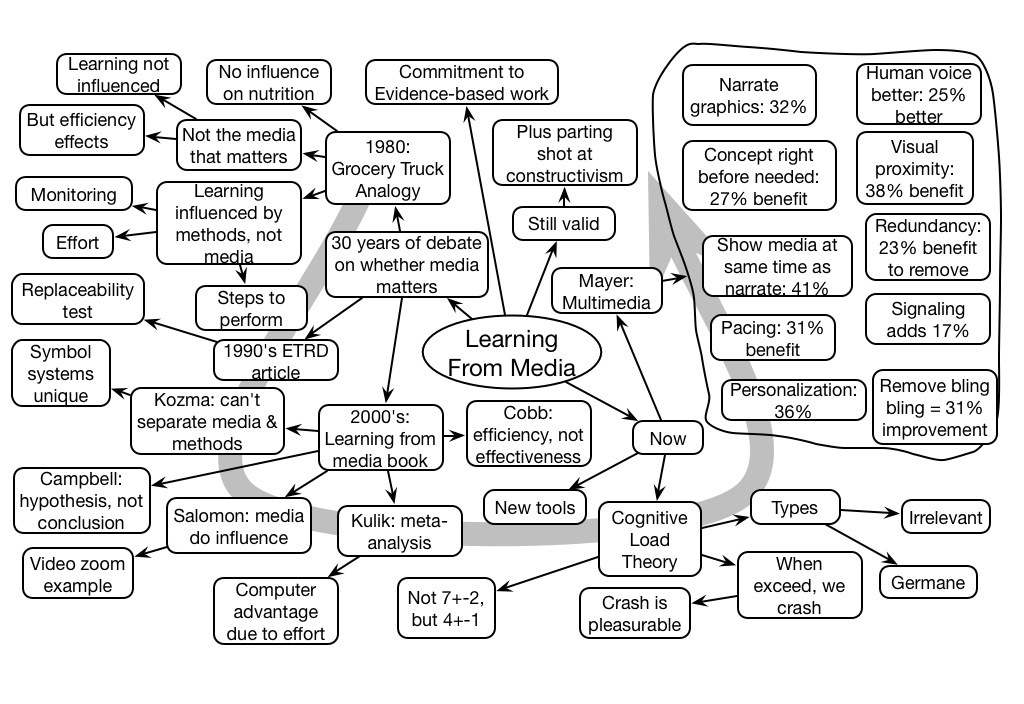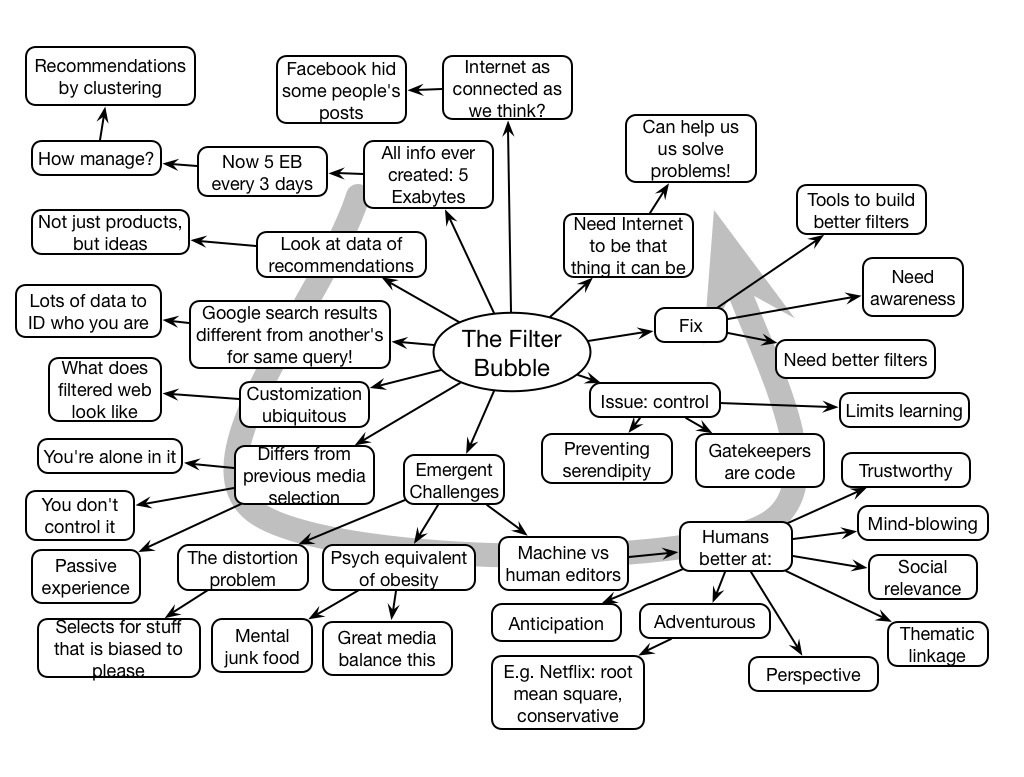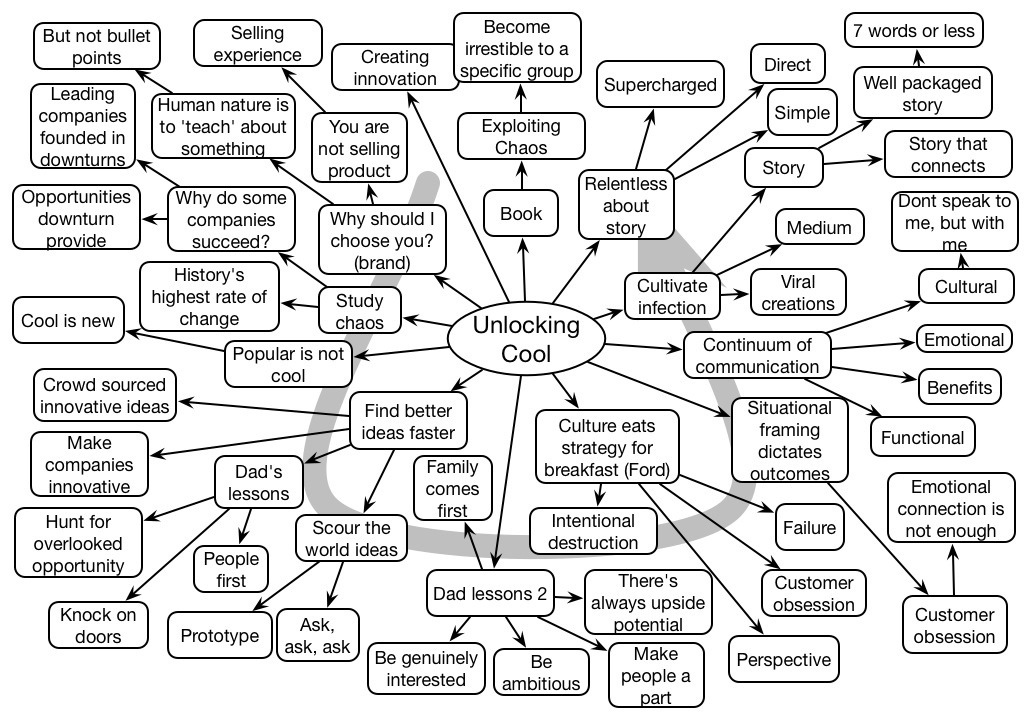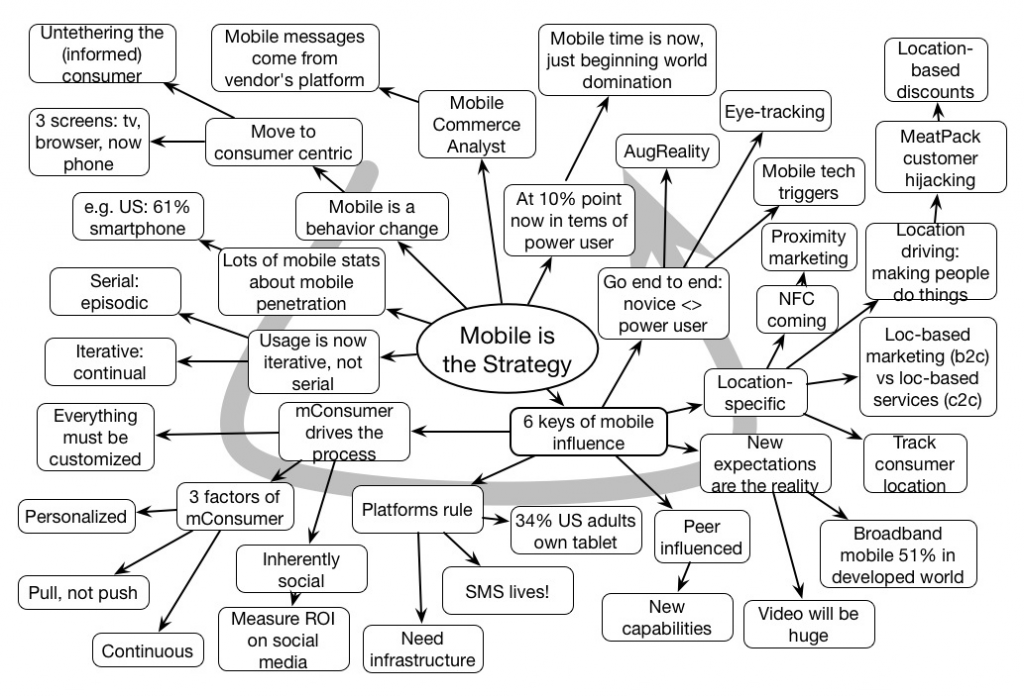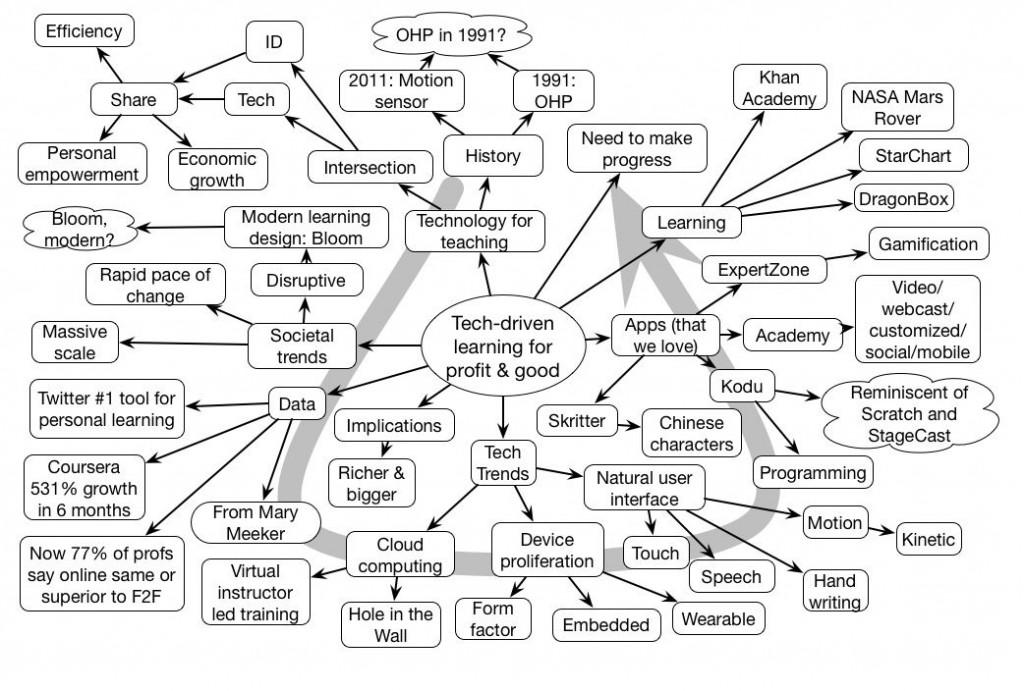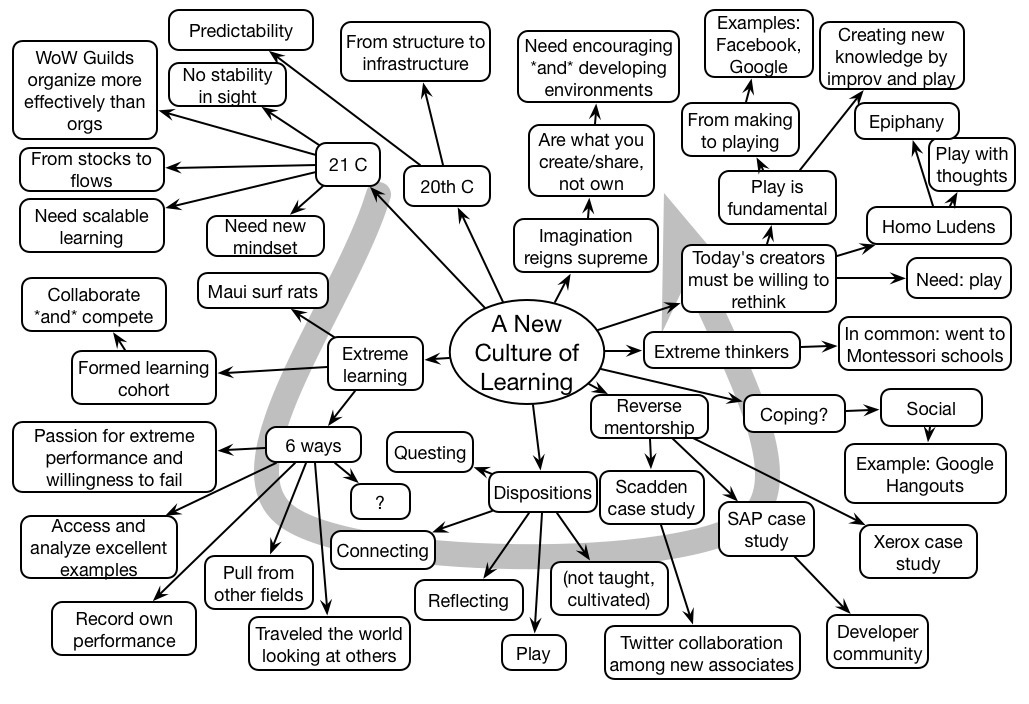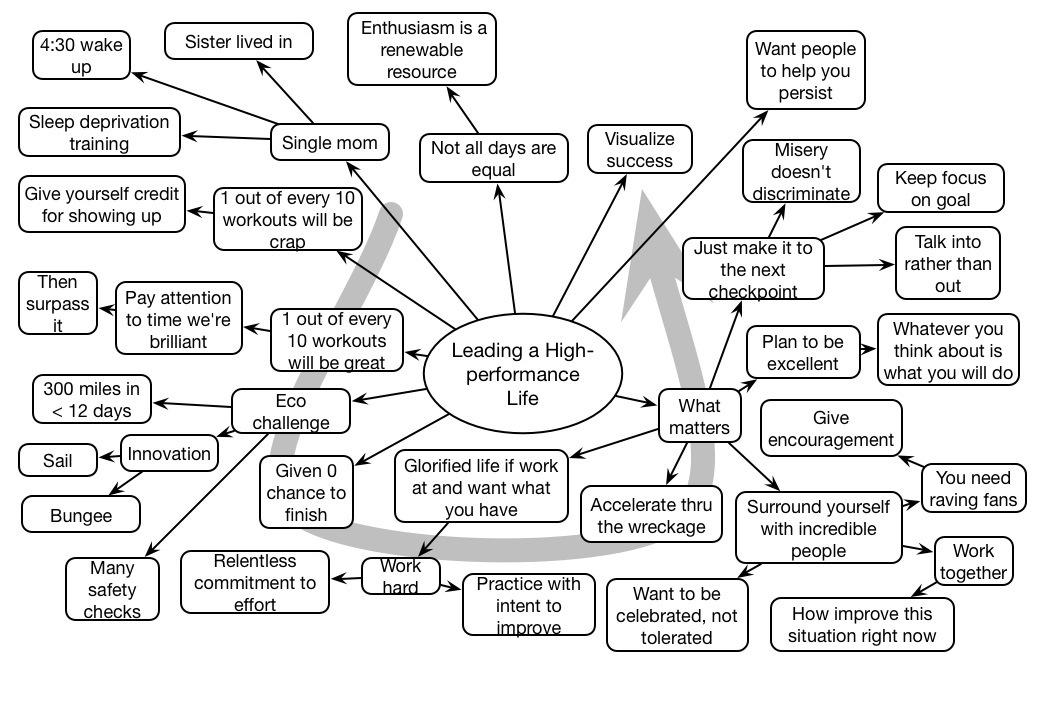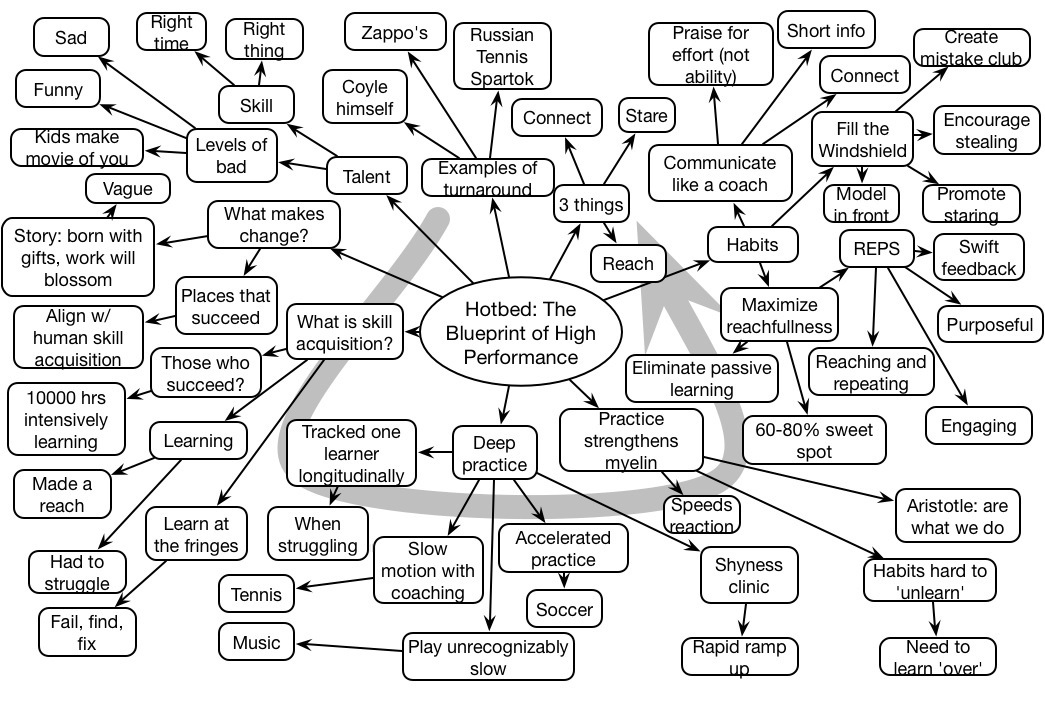Richard Clark presented the research on media and learning, highlighting the 30 years of debate. He started talking about the importance of evidence, and summarized a variety of points of view and research, with a focus on John Sweller’s Cognitive Load Theory and Dick Mayer’s multimedia work. He finished with a potshot at constructivism.
Search Results for: mindmap keynote
Jason Lauritsen & Joe Gerstandt #DevLearn Keynote Mindmap
Jason and Joe led a lively session inspiring us to innovate through small hacks. Their very pragmatic process is approachable and practical. A great closing to DevLearn.
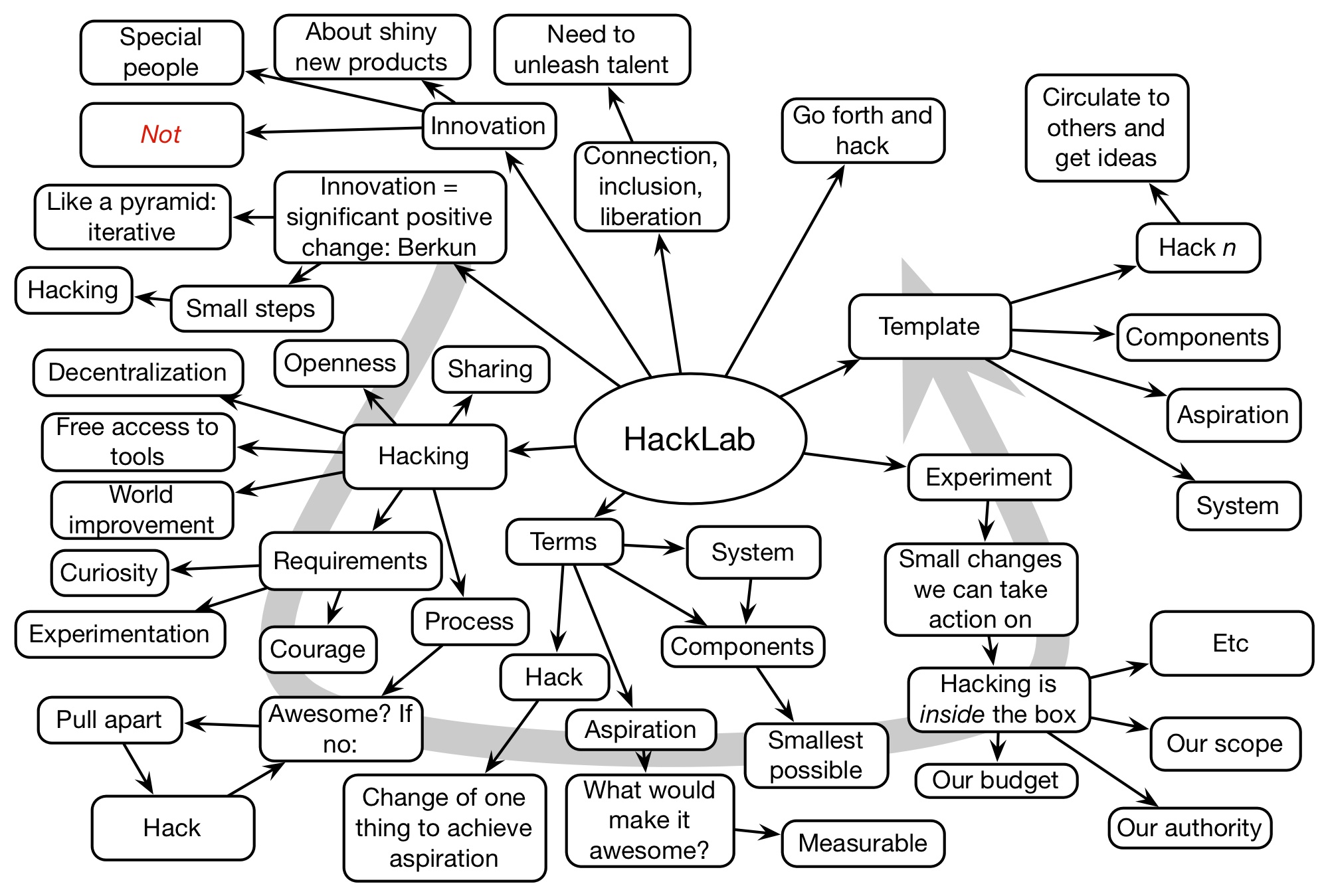
Eli Pariser #DevLearn Keynote Mindmap
Jeremy Gutsche #DevLearn Keynote Mindmap
Peter de Jager #PSS13 Keynote Mindmap
Chuck Martin #mLearnCon Keynote Mindmap
Christopher Pirie #mlearncon Keynote Mindmap
Christopher Pirie opened the eLearning Guild’s mLearnCon mobile learning conference with a fair overview of technology for learning. He talked about the usual trends, and pointed to some interesting game apps for learning. Kodu, in particular, is an interesting advancement on things like Scratch and StageCast’s Creator.
I was somewhat surprised by his pointer to Bloom as the turning point to modern learning design, as I’d be inclined to point more to Collins & Brown’s Cognitive Apprenticeship. I also think he should take a look at Donald Clark’s criticisms of Mitra’s Hole in the Wall. Finally, the characterization between the overhead projector as characteristic of 1991 and the Kinect for 2012 is a bit spurious: in 1991 we also had HyperCard, and in 2012 I don’t see the Kinect in many classrooms yet, but his point is apt about the potential for change we have at our fingertips.
Overall, a nice kickoff for the conference.
JSB #astd2013 Keynote Mindmap
Yvonne Camus #LSCon Keynote Mindmap
Daniel Coyle #LSCon Keynote Mindmap
Daniel Coyle gave a wonderfully funny, passionate, and poignant keynote, talking about what leads to top performance. Naturally, I was thrilled to hear him tout the principles that I suggest make games such a powerful learning environment: challenge, tight feedback, and large amounts of engaging practice. With compelling stories to illustrate his points, he balanced humor and emotional impact to sell a powerful plea for better learning.
